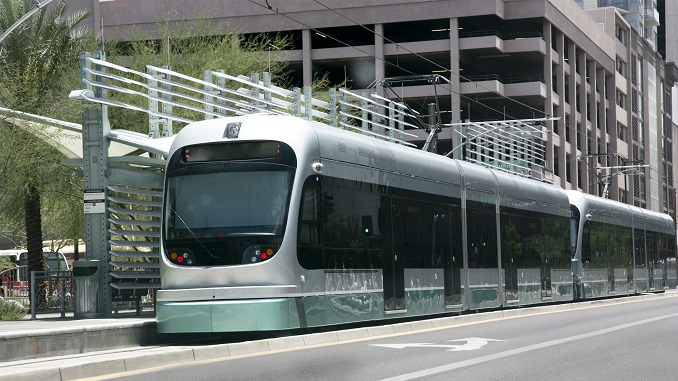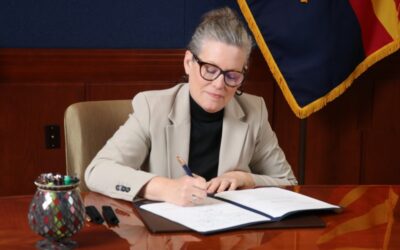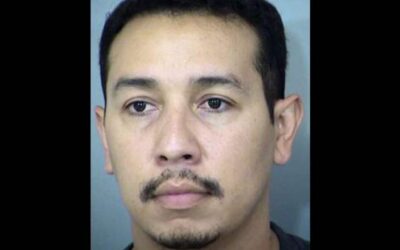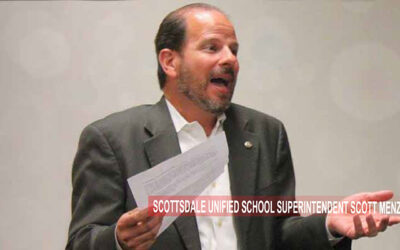By Corinne Murdock |
The Arizona legislature approved the Maricopa County transportation tax on Monday along bipartisan lines, 43-14 in the House and 19-7 in the Senate.
The bill, SB1102, would allow voters to decide whether to maintain the current transportation excise tax: Proposition 400, set to expire at the end of 2025. It doesn’t maintain the original reformation desired by Republican lawmakers: a choice to separate roads and commuter rail when it comes to funding. Prop 400 binds the two together as a package deal.
The legislature convened to consider SB1102 after Gov. Katie Hobbs vetoed the version of the bill splitting the Prop 400 question (SB1246) last month.
The 14 House legislators who opposed the bill were State Reps. Neal Carter (R-LD15), Joseph Chaplik (R-LD03), Justin Heap (R-LD10), Laurin Hendrix (R-LD14), Rachel Jones (R-LD17), Alexander Kolodin (R-LD03), David Marshall (R-LD07), Cory McGarr (R-LD17), Steve Montenegro (R-LD29), Barbara Parker (R-LD10), Jacqueline Parker (R-LD15), Michael Peña (R-LD23), Beverly Pingerelli (R-LD28), and Austin Smith (R-LD29). The seven Senate legislators who opposed the bill were State Sens. Shawnna Bolick (R-LD02), Sally Ann Gonzales (D-LD20), Jake Hoffman (R-LD15), Anthony Kern (R-LD27), J.D. Mesnard (R-LD13), Wendy Rogers (R-LD07), and Justine Wadsack (R-LD17).
The bill’s passage marked a divide among Republican lawmakers as leadership declared it a win. Senate President Warren Petersen (R-LD12) said in a press release that the bill would ensure infrastructure development to counter the rising rates of vehicle congestion and travel times on the road while preventing ineffective environmentalist policies.
Sen. Frank Carroll (R-LD28) noted that the bill restricted any level of Arizonan government from restricting the use or sale of a vehicle based on its energy source, and required mass transit to recoup at least 10 percent of costs from farebox revenues beginning in 2027, and then 20 percent by 2031.
Opponents disagreed that the bill constituted a win. Kolodin argued during the floor vote that the bill denied voters true choice. Kolodin estimated that Prop 400’s continuation would halve road funding in order to pay for other commuter projects used by one percent of the population. He noted that SB1102 further bled roads funding by allowing those funds to be used for other projects, like bicyclist paths and sidewalks.
“This bill denies voters of Maricopa County a real choice. It holds road funding hostage in order that the voters, who would otherwise not vote in favor of spending 40 percent of the money of this new tax on transit projects that less than one percent of them use, that they choose to vote for them anyway to get the roads,” said Kolodin. “A tax extension is a tax increase.”
Rogers said the bill constituted a tax far too expensive and weak for her taste.
Democrats championed the bill as a necessity for achieving equity.
State Rep. Marcelino Quiñonez (D-LD11) said that Prop 400 was the “responsibility” of the legislature to pass.
Heap called the bill “disappointing.”
Heap and Jones predicted that the bill’s passage marked a major win for the Democratic Party and the Hobbs administration, one that would carry into the 2024 election.
State Rep. Matthew Gress (R-LD04), who voted in favor of the bill, said it would ensure the restoration of State Route 51 and other critical pavement rehabilitation. Gress said that the 3.5 percent cap on the existing light rail system, a contingency for Hobbs’ approval, constituted a win since it was far less than other proposed rates.
The Arizona Free Enterprise Club (AFEC) voiced opposition to the plan on Sunday, warning that the bill wouldn’t prevent road diets, Vision Zero projects, and progressive air quality control measures. AFEC offered a side-by-side comparison of SB1102 and the predecessor vetoed by Hobbs last month, SB1246.
AFEC further assessed that SB1102 would enable the Maricopa Association of Governments to enact its 2050 Momentum Plan.
Prop 400 will appear on the November 2024 ballot for final voter approval. The tax was set to expire at the end of 2025.
Corinne Murdock is a reporter for AZ Free News. Follow her latest on Twitter, or email tips to corinne@azfreenews.com.








